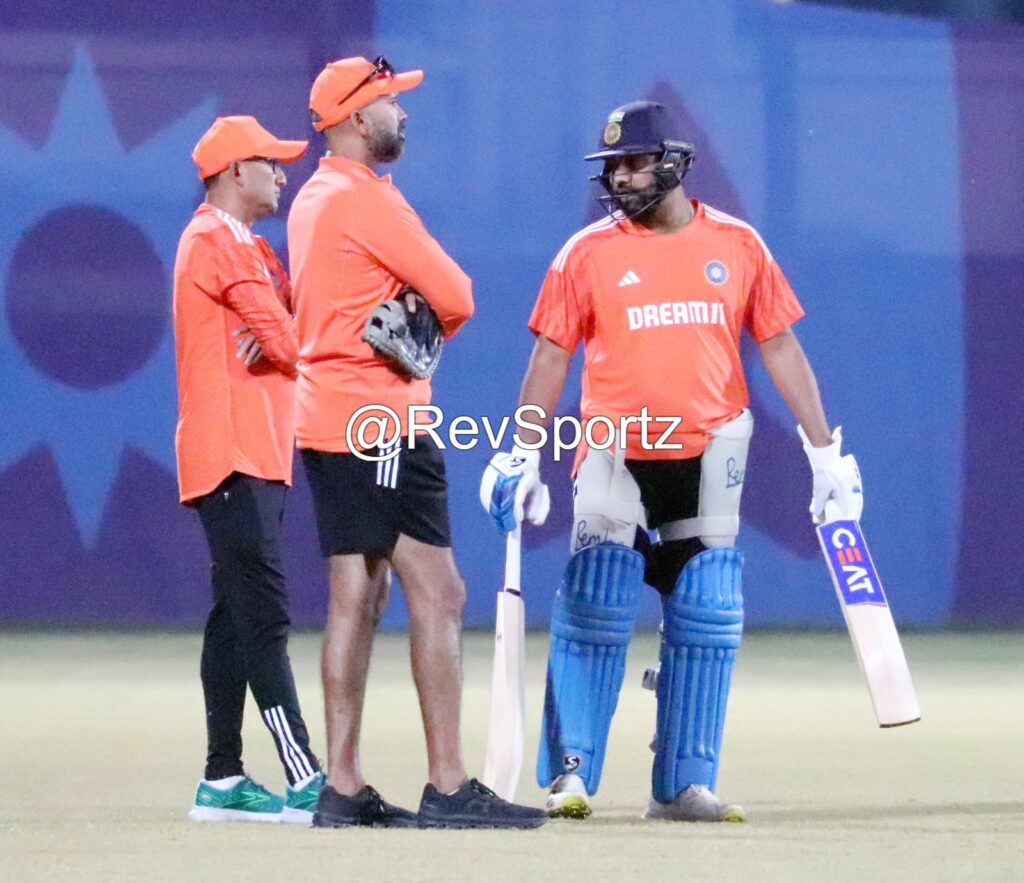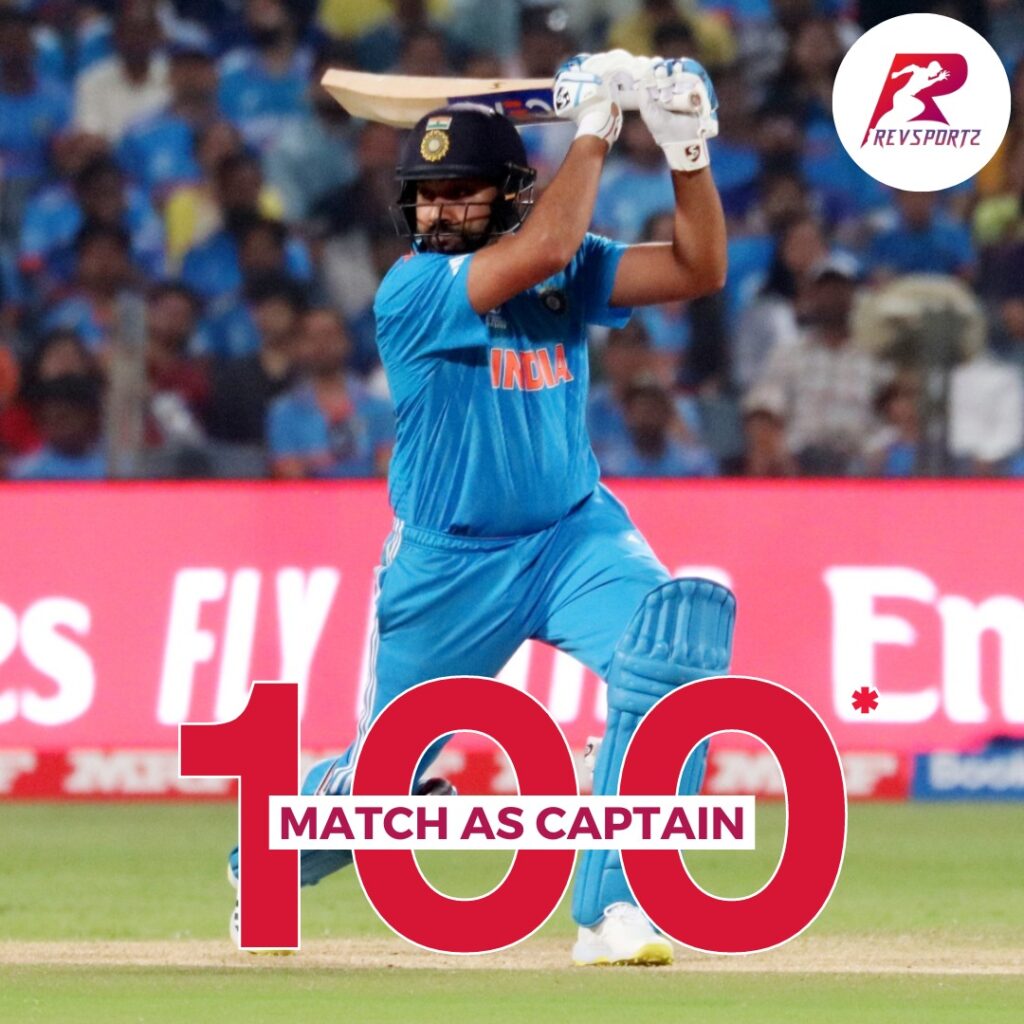His 100th match as captain. And yet, he will say with the very same smile, “The captain is the least important person in the team. No, not in terms of performance. When it comes to batting, you need to lead from the front. Set the tone. But on the field, the captain comes after all his players.” A very Rohit Sharma kind of statement, and one that sums up his cricket philosophy.
Ask any member of the Indian team, and all of them swear by their skipper. They know his door is always open. They know they can confide in him and have his backing. They know he has few insecurities, and he will do all he can to ensure they feel welcome and protected. Rohit is a players’ captain and that’s what defines his craft.
He will go to any length to ensure his team benefits and if that means he has to do things differently, he won’t hesitate. He leads by example and is known to make the youngsters feel at ease when they are new to the dressing room. Not only does he take them out for dinner to ease them into the pressures of international cricket, he always maintains that as leader, he needs to make his teammates feel most comfortable.
“You can’t lead a cricket team in isolation,” he once said to me. “You have to understand and talk to each and every player in your team to know what they are thinking, and how they are approaching the game. You have to make sure that they buy into your strand of thinking, for only then can a successful cricket team get created. At MI [Mumbai Indians], for example, we had many stars in the team and it has always been challenging as the captain of the side. I must say I have thoroughly enjoyed the experience and I have learnt a great deal. You learn to understand human minds better, tackle situations better, get exposed to different cultures and ideas and, at the end of the day, turn into a better human being.”
He thereafter went on to highlight how things have changed with him over time as captain. “With time, you tend to realise that as the leade,r you are the least important member of the team. That’s how I now think, for if I have to take the team forward, I can’t do so myself without the support of the boys.That’s why I think that I am the last member of the squad and the other ten are more important than me. In this way, I can get the best out of each of them.”
Those are the words of a mature cricketer, of someone who has been around over a decade and is on top of his game. That lack of insecurity is what defines Rohit.
“You can say this is probably the best time of my life in terms of what I do on and off the field,” he said. “Enjoying each and every moment provided in front of me. The sport is something that once you start enjoying, you feel so relaxed and comfortable in whatever you do. I have started enjoying all that a lot more. I was taking too much pressure earlier thinking about my game a lot more than I should be. I was perhaps going overboard so I wanted to balance all that out. I started thinking that going overboard is not going to take me anywhere. In thinking that I needed to do a lot more, I was forgetting the basics of cricket and I was focussed a lot more on the technical faults in my batting. But it was all about going out and having fun as well, and that’s why I think the first half of my career was all about taking pressure and going through tough times. Not doing the right things, not being disciplined about how I wanted to bat.”
That he is ready to walk the talk has been evident through this World Cup, and that’s what India fans have loved to see.
Being in charge
I remember speaking to Rohit when he had missed out on 2011 World Cup selection. Understandably, he was crestfallen. But like the story of his career, he refused to give up. He was prepared to go back to domestic cricket and do the hard yards. He was prepared to struggle far away from the glare of the cameras, and get himself battle-ready for World Cup 2015. It was because of another fabulous Rohit century against Bangladesh in the quarter-final that India managed to make the semi-finals in Australia in 2015 and despite a blazing start in the semi-final, Rohit and the rest of the team failed against a superior Australian team. In 2019, he was even better, but yet again fell short in the semi-final.
“Since the 2019 World Cup, we have plugged a few gaps in the team and I have to say we have the best balance we can possibly have,” said Rohit ahead of this tournament.
And when asked if all this talk about him being one of the best ever adds to the pressure, he was respectfully dismissive. “That’s my job,” he said. “Opening the batting is a challenge but that’s why you play the game. To overcome these challenges and score for India gives you the greatest joy. I have never looked at it as pressure. Rather, I will always want an opportunity to go out there and do something for my team.”
This is one trait that links the greats. The zeal and the willingness to embrace the occasion and the deep-seated desire to be a hero. Rohit is no different. As one of the best of this era, he knows he can win games for India. In doing so, he can raise his bat to the appreciation of the crowd and the millions of fans who idolise him. He has struggled to get to where he has. He has looked ugly at times. But true to his motto, he has never given up, and continues to live his dream of playing for India. These 100 games as leader stand testament to that.





